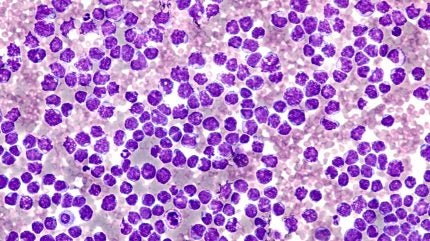
AstraZeneca has reported positive data from the ECHO Phase III clinical trial where its Calquence combination therapy (acalabrutinib) significantly improved progression-free survival (PFS) in patients with untreated MCL.
The combination therapy has also indicated a favourable trend in overall survival (OS) compared with the standard chemoimmunotherapy regimen comprising bendamustine and rituximab.

Discover B2B Marketing That Performs
Combine business intelligence and editorial excellence to reach engaged professionals across 36 leading media platforms.
The double-blind, randomised, placebo-controlled, multicentre trial is designed to assess the efficacy and safety of the Calquence regimen versus placebo plus standard-of-care chemoimmunotherapy in adult MCL patients aged 65 years or above.
According to the findings, patients treated with the Calquence combination experienced a median PFS of 66.4 months, a notable increase from the 49.6 months observed in patients receiving standard chemoimmunotherapy.
In the secondary endpoint of OS, a positive trend for the Calquence combination was reported, although the data were not mature at the time of analysis.
Conducted during the pandemic, the ECHO trial included a pre-specified analysis that censored Covid-19-related deaths to assess their impact. This analysis revealed an even greater improvement in PFS, with the Calquence combination reducing the risk of disease progression or death by 36%.

US Tariffs are shifting - will you react or anticipate?
Don’t let policy changes catch you off guard. Stay proactive with real-time data and expert analysis.
By GlobalDataCalquence’s safety and tolerability were in line with its known safety profile without any new safety signals detected.
AstraZeneca Oncology R&D executive vice-president Susan Galbraith said: “The ECHO trial data demonstrate important progress in improving outcomes for patients with mantle cell lymphoma.
“The 16.8 months of additional time patients can live without their disease progressing is highly clinically meaningful, together with a trend to improvement in overall survival. We therefore believe Calquence plus chemoimmunotherapy will be an important new option for patients living with this disease.”





